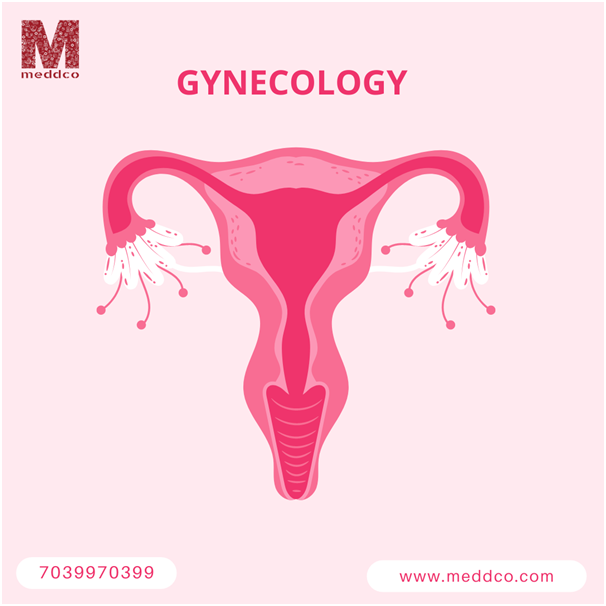Introduction
Gynaecology is a specialized branch of medicine dedicated to the health and well-being of women. It encompasses a wide range of services, from routine preventive care to diagnosing and treating various gynaecological conditions. In this comprehensive article, we will explore the vital role of gynaecology in women’s health, the importance of regular check-ups, common gynaecological issues, and the latest advancements in the field.
The Significance of Gynecology
Gynaecology plays a crucial role in promoting and maintaining women’s reproductive health throughout different stages of life. It focuses on the female reproductive system, including the uterus, ovaries, fallopian tubes, cervix, and vagina. Regular gynaecological check-ups are vital for the early detection and prevention of various conditions, ensuring overall well-being.
Routine Gynecological Check-ups
Regular gynaecological check-ups are recommended for women of all ages, even if they are not experiencing any noticeable symptoms. These check-ups typically include a pelvic examination, breast examination, and Pap smear for cervical cancer screening. Women should begin seeing a gynaecologist in their early teens or when they become sexually active.
Common Gynecological Issues
- Menstrual Irregularities
Many women experience irregular periods, which can be caused by hormonal imbalances, stress, or certain medical conditions. Gynaecologists can diagnose the underlying cause and provide appropriate treatment.
- Pelvic Pain
Pelvic pain can be a sign of various gynaecological issues, such as endometriosis, pelvic inflammatory disease (PID), or ovarian cysts. Timely diagnosis and intervention are essential to alleviate discomfort and prevent complications.
- Urinary Incontinence
Urinary incontinence, the involuntary loss of urine, is a common issue among women, especially after childbirth or during menopause. Gynecologists can offer effective treatments, including pelvic floor exercises and medications.
- Gynecological Infections
Infections in the reproductive system, such as yeast infections or bacterial vaginosis, require proper diagnosis and treatment to prevent recurrent infections and potential complications.
- Infertility
Gynecologists play a critical role in diagnosing and treating infertility issues, helping couples achieve their dream of parenthood through various fertility treatments.
- Menopause Management
During menopause, women experience various symptoms due to hormonal changes. Gynaecologists can provide guidance and hormone replacement therapy to manage menopausal symptoms effectively.

Advanced Gynecological Treatments
- Minimally Invasive Surgery
Advancements in technology have led to the development of minimally invasive gynaecological surgeries, such as laparoscopy and hysteroscopy. These procedures offer smaller incisions, reduced scarring, and faster recovery times.
- Robotic Surgery
Robotic-assisted gynaecological surgeries provide surgeons with enhanced precision and control during complex procedures, resulting in improved patient outcomes.
- In-Office Procedures
Some gynaecological treatments, such as endometrial ablation and hysteroscopy, can be performed in the office setting, avoiding the need for hospitalization.

The Role of Gynecology in Preventive Care
Gynaecologists not only diagnose and treat conditions but also emphasize preventive care. They promote regular screenings, vaccinations, and lifestyle modifications to reduce the risk of gynaecological issues and overall health concerns.
Empowering Women’s Health
Gynaecology plays a pivotal role in empowering women to take charge of their health. It provides a safe and supportive environment for women to discuss their concerns and seek appropriate medical advice.
Conclusion
Gynaecology plays a vital role in women’s health and well-being. Through routine check-ups, timely diagnosis, and advanced treatments, gynaecologists support women throughout different stages of life. Empowering women with knowledge about their bodies and encouraging preventive care, gynaecology remains an essential aspect of healthcare for women worldwide.
FAQs
- When should women start seeing a gynaecologist?
Women should start seeing a gynaecologist in their early teens or when they become sexually active.
- What are some common gynaecological issues?
Common gynaecological issues include menstrual irregularities, pelvic pain, urinary incontinence, gynaecological infections, infertility, and menopause-related symptoms.
- What are some advanced gynaecological treatments?
Advanced gynaecological treatments include minimally invasive surgery, robotic surgery, and in-office procedures.
- How can gynaecology empower women’s health?
Gynaecology empowers women by providing a safe and supportive environment to discuss concerns, promoting preventive care, and offering tailored treatments for various gynaecological conditions.
- Are routine gynaecological check-ups necessary even without symptoms?
Yes, routine gynaecological check-ups are necessary for the early detection and prevention of gynaecological issues, even if no symptoms are present.
Meddco.com is a leading healthcare platform in India, connecting patients with trusted healthcare providers. It offers transparent pricing and facilitates easy medical appointments. With a vast network of hospitals and doctors, Meddco.com empowers patients to make informed decisions and access quality healthcare services effortlessly.
Gynaecology price packages are available on our website. Visit our website to find out more about it.






Be First to Comment